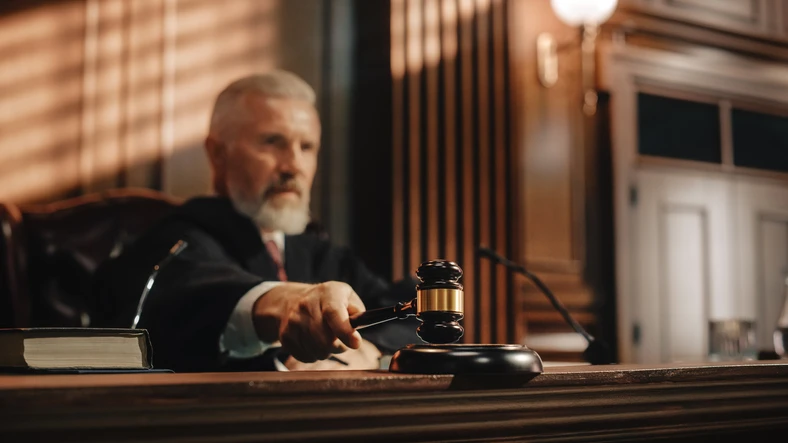If you suspect your insurance claim or appeal was denied or undervalued in bad faith, you may wonder how to prove bad faith in court. State and federal laws are in place to hold insurance companies accountable to agreed terms and fair assessment of claims. Insurance companies often break these rules when assessing claims, but you can protect your interests by learning your rights and working with an experienced Texas bad faith attorney.
At McLaurin Law, we sue insurance companies for bad faith insurance claim denials in Texas. Read below to understand how a bad faith insurance claim works in Texas and what steps to take if your claim or appeal was wrongly denied. Call 713-461-6500 today to contact our bad faith insurance legal team and schedule a free strategy session in Houston, TX.
Do You Have a Bad Faith Insurance Claim in Texas?
Texas insurance companies are required to act in good faith, which means they deal with you fairly and honestly. Generally speaking, to fail to meet standards of honest dealings would be to act in bad faith. The law provides several ways to demonstrate bad faith in the ways an insurance company deals with policy claims.
You and your attorney must collect and present evidence to prove bad faith has occurred. Such actions may fall under either Common Law Bad Faith or Statutory Bad Faith. If you can prove the insurance company knowingly or intentionally acted in bad faith, you may be able to collect damages of three times the amount originally owed to you.
To prove Common Law Bad Faith, you will either need to show your claim was altogether wrongfully denied or demonstrate that delays you experienced from the insurance company were unreasonable in light of clear evidence of coverage or liability. Rather than proving according to statute, common law is unwritten law based on court precedents.
Statutory Bad Faith involves failing to meet the standards of The Texas Insurance Code, which lists many ways bad faith might happen. Chapter 541 of the Texas Insurance Code is entitled Unfair Methods of Competition and Unfair or Deceptive Acts or Practices. Chapter 542 is entitled Processing and Settlement of Claims. Discuss with your attorney if you experienced misrepresentation or unnecessary delays or if your claim was undervalued or unfairly denied.
What To Do If You Believe Your TX Insurance Claim or Appeal was Denied or Undervalued in Bad Faith
First, involve an experienced and knowledgeable bad faith attorney. There are several steps involved before you would file a lawsuit, and your attorney can help you to navigate them:
- Reviewing your insurance contract
- Gathering information on your claim
- Documenting your claim’s denial
- Sending a final demand letter
- Filing a complaint with the Texas Department of Insurance
- Initiating a lawsuit for bad faith
Evidence to Support a Texas Bad Faith Insurance Claim in Court
Some types of evidence that can support your bad faith insurance lawsuit are:
- The insurance policy itself and related corporate policies
- The insurance company’s file of your claim
- Testimony on the handling of insurance claims from third-party insurance industry witnesses
Of course, the text of your insurance policy will be critical to reference in determining whether the insurance company met the terms of the agreement. Their corporate policies may provide information regarding how claims adjusters are told to approach claims, which may factor into the unfair or inaccurate adjustment of claims.
By reviewing the insurance company’s file of your claim, we may be able to determine or infer whether your claim was handled in a timely manner. This file may include evidence of the insurer’s intent and impressions, and any enclosed correspondence or details on the investigation of your claim may shed additional light on how your claim was treated.
Third-party insurance industry witnesses can explain some of the finer details of handling insurance claims, particularly regarding good versus bad faith. Whereas the general public may not be familiar with the thresholds to meet a standard of good faith, a third-party insurance industry witness can explain insurance companies’ incentives and identify where common practices may tend to involve a deviation from good faith practices.
Reporting a Bad Faith Claim to The Texas Department of Insurance (TDI) & The Attorney General’s Consumer Protection Division
Your complaint with the Texas Department of Insurance is separate from your lawsuit. Understand that the actions they take in response thereafter may proceed parallel to your lawsuit. A complaint may also be filed with the Office of the Attorney General’s Consumer Protection Division. Your attorney should coordinate these choices with timing and strategy in light of the evidence needed, deadlines, and other factors.
Work With an Experienced Bad Faith Insurance Attorney if Your Claim or Appeal Has Been Denied in Texas
Bad faith dealings from insurance companies are deeply unfair to policyholders in Texas. Nevertheless, practices violating policyholders’ rights are common. At McLaurin Law, we work with you to pursue fair and appropriate compensation for valid claims. If we file a lawsuit on your behalf, we will also pursue damages for bad faith in addition to what is indicated in your policy.
If you believe your insurance claim was denied in bad faith in Houston, involve an experienced bad faith insurance attorney from McLaurin Law early in the process. Call (713) 461-6500 today to schedule a consultation with our legal team, or fill out our online form. Don’t let an unfair denial of a valid claim prevent you from recovering. McLaurin Law — When you need more than luck on your side



